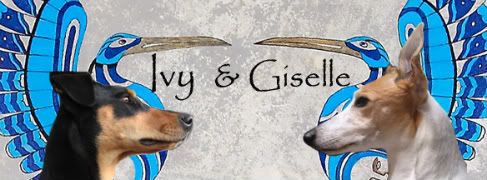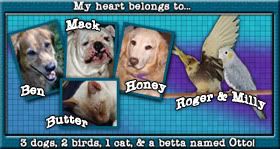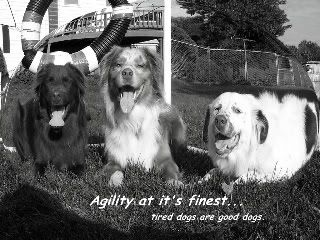I have to agree with the above, but I'll add this:
You sound like you want to do this the right way, which I applaud you for, so here's a few tips for breeding:
Don't do it.
Simple enough, eh?However, if you're REALLY intent on improving the English Bulldog breed and you don't want to do it just to make more puppies, my suggestion for you to be is to stop and think about it. Before you make the jump and buy your foundation b*tch (you most likely will not go far with a male dog as studs are pick of the litter-type pups and reputable breeders RARELY sell their top studs to novices), you should study the breed itself. Know who the top dogs *were*. Know who the top dogs *are*. Know how the breed evolved and fluctuated over the span of a few centuries. Know the "legends" of the breed. Be able to recognize and analyze a good pedigree. Get in touch with the "legends" of the breed. Go to numerous dog shows, be it conformation or performance events. Get yourself involved in the sport. Know how to properly groom and feed your specific breed. Know how to handle them in the ring, be it conformation or performance. Know all the medical problems your breed is susceptible to (Bulldogs have many). Know how to prevent them. Know genetics!!! You will most likely encounter in/linebreeding when dealing with conformation-heavy dogs, so if you want to continue that tradition, you'll need to have a firm grasp of genetics. In/Linebreeding can be done successfully as long as you know how to do it.
Now that we've got the bare basics done, find a breeder you really admire and ask him or her to be your mentor. More than likely, they will jump for joy and begin to show you the ropes of the dog breeding world. There is SO much more to it than Fido and Fifi, and, honestly, the best advice comes from one with experience within the breed. Once you get in touch with a mentor, he or she will readily provide you with a top quality dog. A good breeding program lies in its foundation, and the foundation of a good program lies in good breeding stock. To find good breeding stock, you'll need connections within the breed and you'll need to know the past and present "legends" of the breed. Beyond that, you'll need to take all the necessary precautions before even considering a stud for your foundation b*tch.
Bulldogs, in particular, are susceptible to many hip, knee, eye problems and even bloat!
To prevent these health maladies, you'll need to get your dog tested via:Possible Health Problems
Bulldogs have numerous known genetic defects and are subject to various illnesses that affect many breeds. Common Bulldog health problems you may encounter include: elongated soft palate, small trachea, allergies, dermatitis, demodetic mange, eye lid anomalies, hip dysplasia and heart problems. Some of them have a tendency toward self-mutilation (especially if they have itchy skin), so owners should watch carefully for signs of skin irritation and scratching. If you are adopting an older dog, many of these conditions will already have been identified.
Twenty-four hour care by a qualified veterinarian must be available. Since not all veterinarians are knowledgeable about the health problems Bulldogs may have, you should consult experienced Bulldog owners or the rescue to find a capable veterinarian. Any veterinarian who will be doing surgery on your Bulldog should have previous experience with putting Bulldogs under anesthesia.
CERF (http://www.vmdb.org/cerf.html)
Optigen (http://www.optigen.com/)
OFA (http://www.offa.org/)
PennHip (http://www.pennhip.org/)
...and the normal blood/thyroid tests. These tests aren't cheap. Attending and preparing for conformation shows easily run upwards of 1000$ per show, including hotel and gas costs. If, despite all this, you still want to breed, I have to give you a clap on the back and will offer myself to help find you a mentor.
Actually, I know one English Bulldog breeder quite closely and I can PM her website to you. Good Luck!







 Reply With Quote
Reply With Quote


















Bookmarks